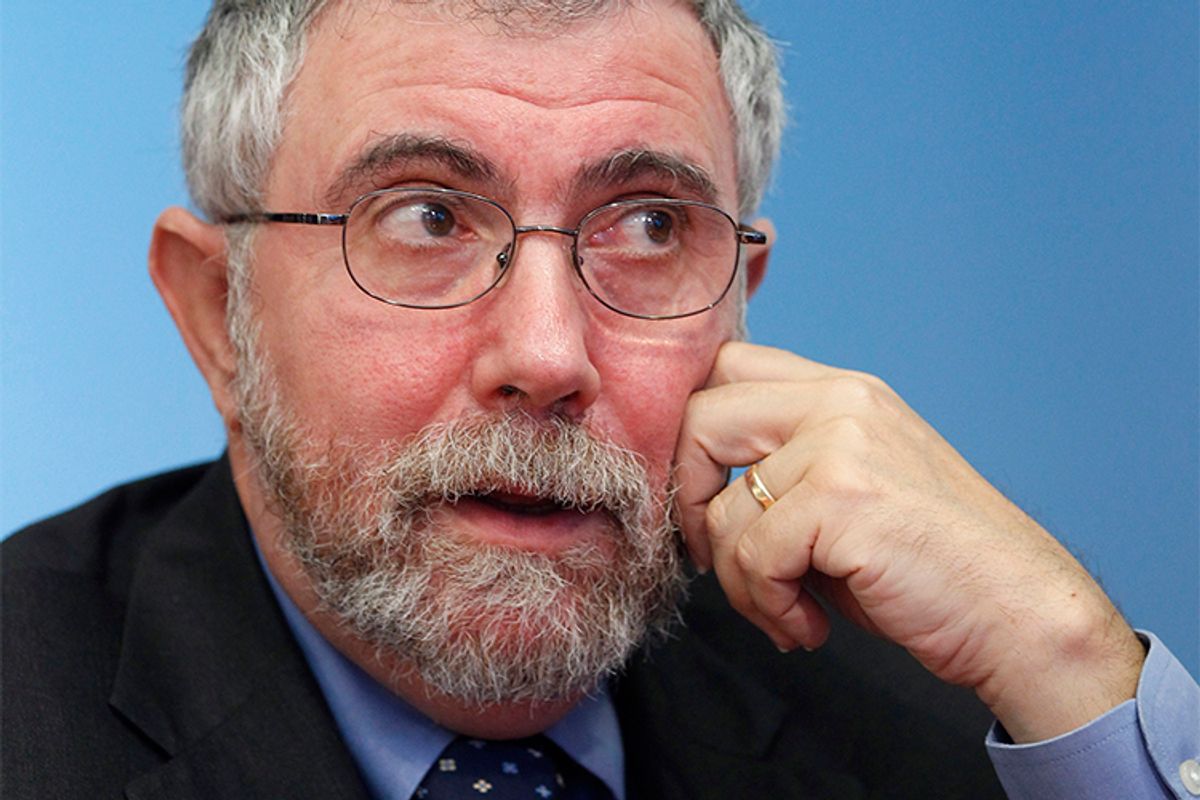In his New York Times column today, Nobel Prize-winning economist Paul Krugman dismantles the notion -- widespread among many in the political chattering class -- that business leaders boast unique insight into how the economy works. Experience, Krugman observes, suggests quite the opposite.
Writing from Japan, where the country's central bank just voted to aggressively expand its economic stimulus efforts, Krugman notes that the central bank members who opposed the move were all close allies of Japan's business community.
"Some of the people I’ve spoken to here argue that the opposition of many Japanese business leaders to the Bank of Japan’s actions shows that it’s on the wrong track," Krugman writes. But, he argues, "business leaders often give remarkably bad economic advice, especially in troubled times."
Take the public assault on the Federal Reserve's economic stimulus efforts waged by many business elites, or the largely unquestioned view of many corporate leaders that the deficit must be addressed nownownow, lest our economy collapse. Business people hold these views even though expansionary monetary policy and deficit spending are precisely what a depressed economy requires.
So why doesn't a business background confer any special economic expertise? "The answer, to quote the title of a paper I published many years ago, is that a country is not a company," Krugman contends. "National economic policy, even in small countries, needs to take into account kinds of feedback that rarely matter in business life. For example, even the biggest corporations sell only a small fraction of what they make to their own workers, whereas even very small countries mostly sell goods and services to themselves," he adds.
The differences between running a company and running a country can cloud business leaders' economic judgment, leading them to make wrongheaded economic policy prescriptions, Krugman writes:
So think of what happens when a successful businessperson looks at a troubled economy and tries to apply the lessons of business experience. He or (rarely) she sees the troubled economy as something like a troubled company, which needs to cut costs and become competitive. To create jobs, the businessperson thinks, wages must come down, expenses must be reduced; in general, belts must be tightened. And surely gimmicks like deficit spending or printing more money can’t solve what must be a fundamental problem.
In reality, however, cutting wages and spending in a depressed economy just aggravates the real problem, which is inadequate demand. Deficit spending and aggressive money-printing, on the other hand, can help a lot.
But how can this kind of logic be sold to business leaders, especially when it comes from pointy-headed academic types? The fate of the world economy may hinge on the answer.



Shares